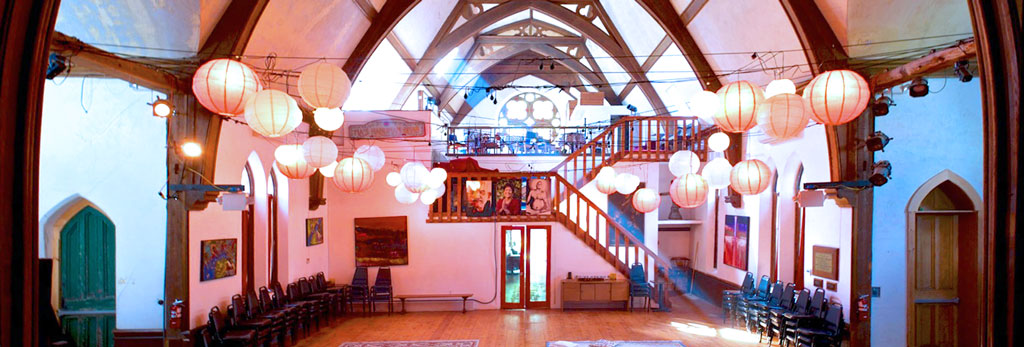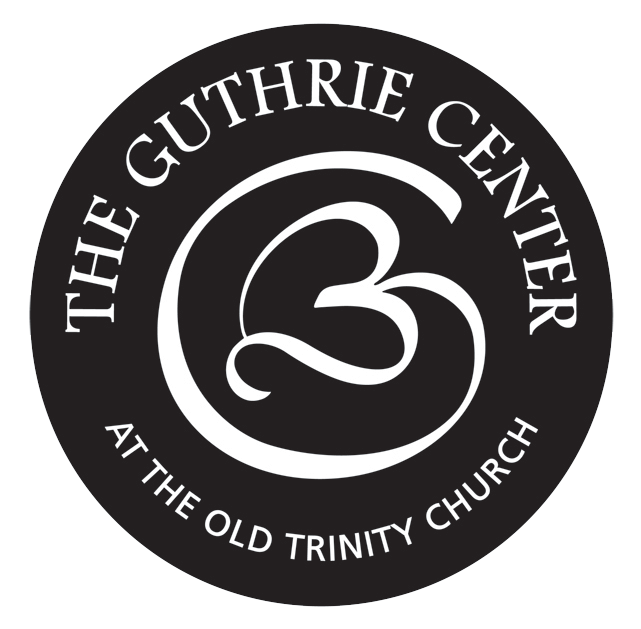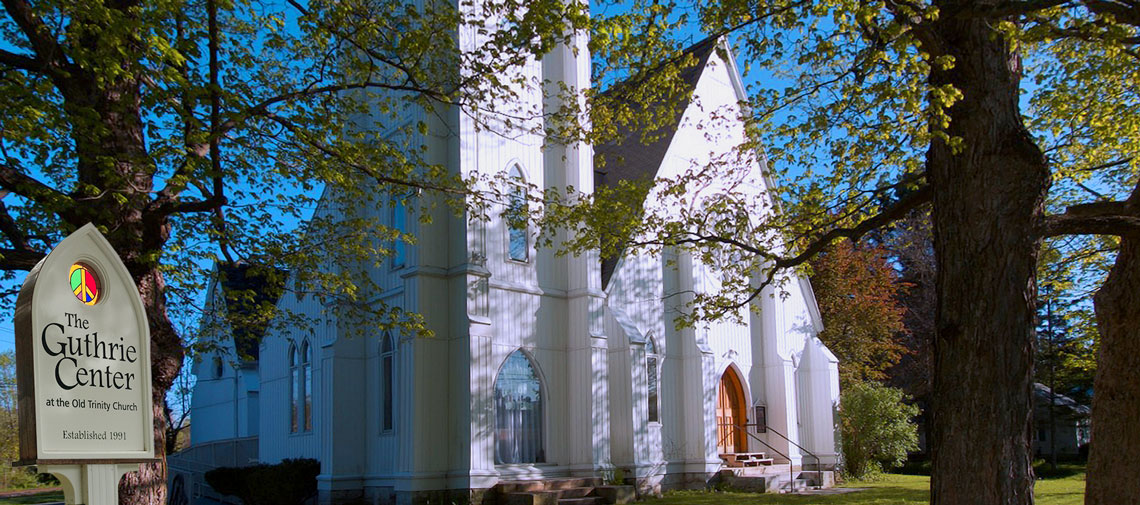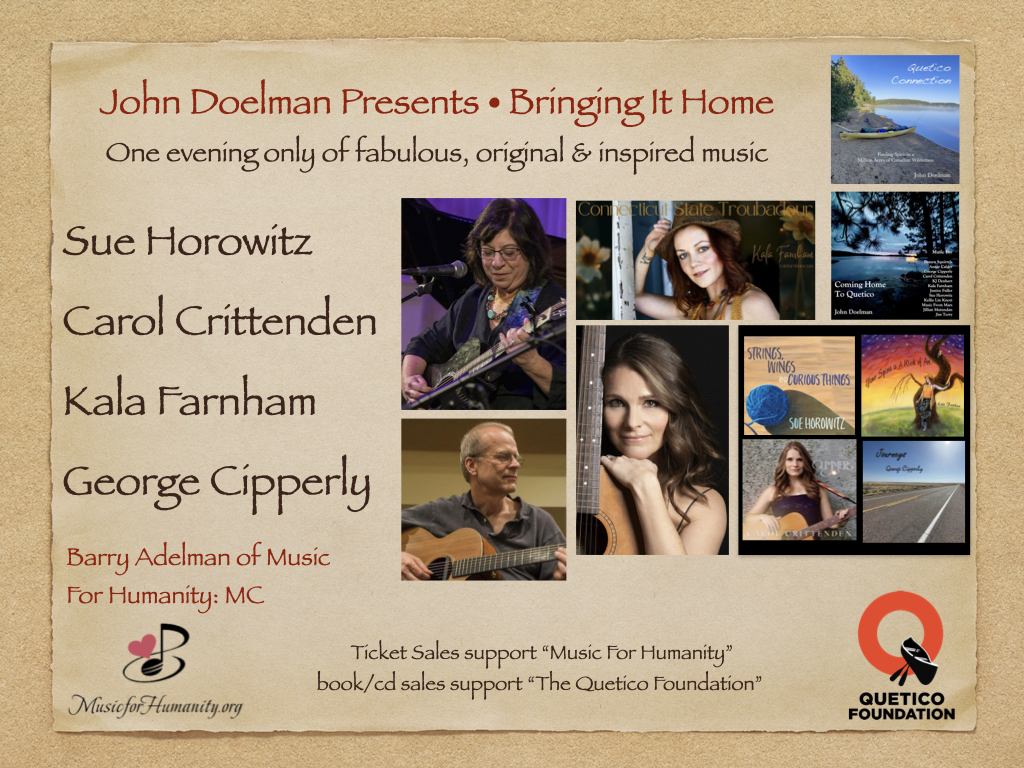Welcome To The Guthrie Center
The Guthrie Center’s office hours are
Tuesday through Friday, 10:00 AM - 3:00 PM.
Open weekends and other times for special events.

Alice’s Restaurant isn’t around anymore. But, as the song says, “Alice didn’t live in a restaurant. She lived in the church nearby the restaurant…” And the old Trinity Church, where Alice once lived and where the saga began has become home to The Guthrie Center.
Arlo Guthrie sought to provide a place to bring together individuals for spiritual service, and founded the Guthrie Center, an Interfaith Church, in 1991. It fulfills Arlo’s aim to meet the ongoing needs of the community, and support cultural preservation and educational achievement. The Trinity Church where the song “The Alice’s Restaurant Massacree” began and where the movie “Alice’s Restaurant” was filmed, continues to service the local and international community.



Originally built as the St. James Chapel in 1829, the structure was enlarged in 1866 and renamed Trinity Church. Ray and Alice Brock purchased the property in 1964 and made it their home. The building has had several owners since the early 1970s.
The Brocks had been on the staff of a small private boarding school in the area – The Stockbridge School. Ray Brock, trained as an architect, taught a shop class and Alice worked as the school librarian. They were wonderfully creative people and attracted a number of students with whom they shared their idealism and their creativity. Arlo Guthrie was one of them.
After four years of high school in Stockbridge, Arlo graduated in the spring of 1965 entering Rocky Mountain College in Billings, Montana the following fall. His college career was short lived, however, and he returned to the Berkshires in November of 1965. He stayed with his friends, Ray and Alice, at the church during the Thanksgiving holidays. The rest, as they say, is history.
The Guthrie Center is dedicated to all those around the world who believe that there is one truth and infinite ways to approach it. As the world becomes smaller we must find ways to embrace the spiritual journeys of those whose traditions are different, without abandoning our own. We must also seek ways to preserve our greatest cultural heritage and find ways to support one another in difficult times. The skills needed for a healthy future are different from the ones needed to preserve the past, and both are required to live in the moment.